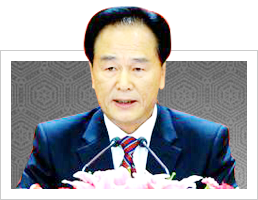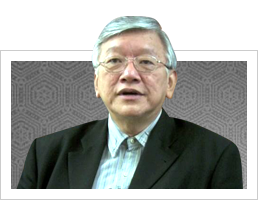Making a nation's dream come true

The author is a research fellow at The Institute for Advanced Humanistic Studies at Peking University.
Few Westerners doubt the rise of China as a political, economic and military power, yet when it comes to "culture" they tend to ask: What exactly is there to learn from China?
China is land of creativity with a rich heritage. It has the potential to be a world leader in almost every field. To realize this potential, it has to realize the "Chinese dream", says the country's leadership. But before analyzing this "dream" let's remind ourselves that President Xi Jinping didn't actually say "Chinese Dream". He said zhongguo meng.
Let me explain this crucial detail by entertaining you with the example of an event that could have happened only in China.
A recent China Central Television "Special" entitled "Chinese dream" and telecast nationwide hosted five leading "China experts" to explain the Chinese dream and China's place in the world without even mentioning a single Chinese word or terminology. The speakers were either foreign nationals or Western-educated Chinese. Do you see the irony? China is trying to import its own history from the West, and it comes Chinese-free. It's like the Americans calling the American Dream "Le Rve Amricain" and inviting some Frenchmen to explain it to them.
A few days ago, I asked a senior editor of Peking University's news department why it doesn't include Chinese words in its English news. She didn't have an answer, because the idea of using Chinese words in other languages (more so in English) has apparently never occurred to Peking University journalists.
Promoting Chinese concepts in the rest of the world is not very difficult - stop translating key Chinese terminologies (at best, give the appropriate or closest meaning and continue with the Chinese terminology). If kung fu, wushu, rujia, shengren, junzi can be understood and accepted by the outside, why not zhongguo meng? Once you translate a Chinese term you give away the definition of thought. Only if classrooms in foreign countries start teaching about zhongguo meng (and not "Chinese dream") will Chinese culture become truly popular across the world.
Otherwise, whenever Western readers come across the term "Chinese Dream", they will try to understand it through their concept of the American Dream. As Slovene philosopher Slavoj Zizek's has warned: "You must not dream dreams which are not yours."
Moreover, there is a difference between a "national dream" and "many individuals' dream". The Chinese dream is a national dream? Dynasties, emperors, Confucianism, Buddhism, Taoism and Communism are unique to China's experience. So the dream China is chasing is different from the one that the West has: The Chinese want to be a strong, rejuvenated wenming (a spiritual civilization). There is little individualism in this dream, at least not yet.
One of the reasons for that is the low salary that people across China get. Many people who don't have the right guanxi (connection) feel wunai (helpless). This inhibits their creativity and drive for self-actualization.
Premier Li Keqiang wants to double the average individual income in China, enabling people to consume more, pursue their hobbies and set personal goals in life. Perhaps that will help release people's true creative potential.
Many Chinese try to imitate Americans in many ways. This again has to do with language. A good percentage of Chinese who study English often forget that it is foreign language and so are its expressions. If China really wants to be a cultural power, it has to promote the inclusion of Chinese terms into foreign languages. In this regard, Japan has fared better than China, because it has exported countless words to Western languages like samurai, Bushido, shogun, kamikaze, karate, sumo and Zen.
There seems to be a tendency among Western writers to give a permanent definition to zhongguo meng. But it's not so much about definition; it's more about universality. Everyone has dreams. But only those who can fulfill their dreams in China can actually understand what the "Chinese Dream" is.
Connotations of Chinese Dream
Inspired by the Chinese Dream, more and more people have begun to chase their own dreams, including dreams to receive better education, start businesses, purchase homes and get rich. People firmly believe that as long as they work hard, their dreams would come true. [more]
Chinese dream and China's governance
A great deal will depend on how Xi Jinping will actually implement the core features of the program he has laid out and how he will seek to create incentives and constituencies to support his programmatic goals.In sum, President Xi has now made very clear where he stands and where he wants the country to go under his leadership, and he has achieved wide-ranging endorsement of this overall program. [more]
Chinese Dream includes strong PLA
The PLA as a pillar of State security follows the trend of the times and follows a principle that is different from colonial aggression and expansion. And China firmly believes in the principles of peace, cooperation and development of military ties with other countries. [more]
The Chinese dream and peaceful development
The most difficult issue in the region now is the the relationship between China and Japan regarding overlapping claims on the Diaoyu, or Senkaku, islands group. The problem is residual from World War II, and the historical part of the issues is complicated. That is why Japan PM Abe’s revisionist statement on World War II and its impact does not help. [more]
The year of Chinese Dream
Distinct from the American Dream, the Chinese Dream cannot be a narrative of pure newness. It is the imagining of a better future with the memory of 4,000 years of history, a movement of renaissance expressed in the vision of "civilizational China". [more]
Defeat challenges, realize Chinese Dream
High economic growth in recent decades may have made China more confident of realizing the Chinese Dream, but the country's new leaders face serious challenges that could hamper their efforts to realize the goal.First and foremost is the need to fight widespread corruption. Making this his main priority, President Xi warned that corruption could lead to "the collapse of the Party and the downfall of the State". [more]
World dialogue on the Chinese Dream
The “Personal Chinese Dream” focuses on the well-being of individual Chinese citizens and thus modifies traditional notions of the primacy of the collective over the individual. The dream of the Personal is balanced with the dream of the National. In fact, the fulfillment of The Personal Chinese Dream constitutes a good part of what it means to fulfill the National Chinese Dream. [more]
Making a nation's dream come true
Promoting Chinese concepts in the rest of the world is not very difficult - stop translating key Chinese terminologies (at best, give the appropriate or closest meaning and continue with the Chinese terminology). If kung fu, wushu, rujia, shengren, junzi can be understood and accepted by the outside, why not zhongguo meng? Once you translate a Chinese term you give away the definition of thought. [more]












